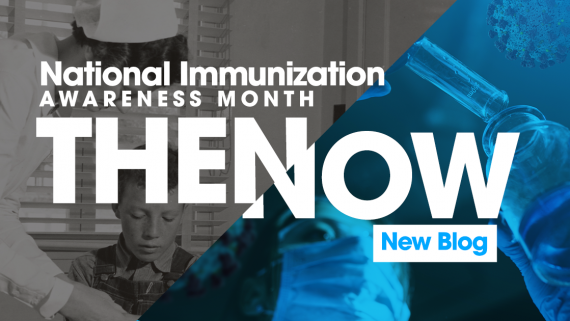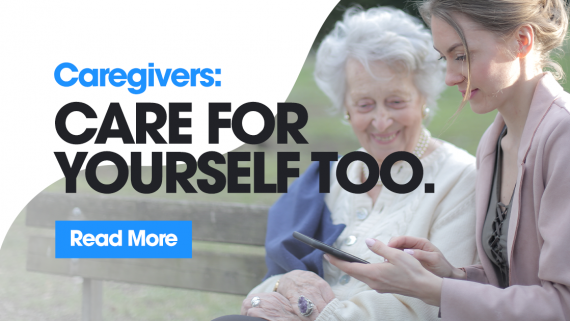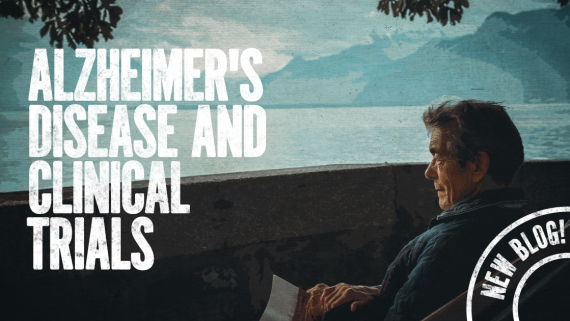August is National Immunization Awareness Month (NIAM). NIAM’s purpose is to promote the importance of vaccines by educating the public on how they prevent serious, and often deadly diseases. With the COVID-19 US death toll currently sitting at almost 145,000 lives lost, the urgency for a vaccine and effective treatment grow with each passing moment.
History of Vaccines
In 1796, a country doctor by the name of Edward Jenner created the first vaccine. He took the pus from a milkmaid’s hand with a cowpox lesion and inoculated eight-year-old James Phipps, who had smallpox. His experiments laid the foundation for vaccinology. Vaccines are humanity’s greatest triumph over diseases like polio, smallpox, whooping cough, measles, and more. These diseases resulted in infant mortality rates of 20% just a little more than a century ago.
Vaccines help our body remember how to fight illnesses. When your immune system encounters a germ, it fights it off over several days while it makes and uses all the germ-fighting tools it needs to beat it. In this process, the immune system remembers what is necessary to protect the body in the future. It puts this information into memory cells, and the next time it encounters that same germ, it can quickly overcome it. Vaccines work similarly by imitating an infection. They rarely cause illness, but your immune system produces the needed antibodies to fight it. Some vaccines require repeated doses to complete immunity.
The Fight to End COVID-19

Around the world, over 165 vaccines are being developed by researchers against the coronavirus. 27 are in human trials. Although vaccines typically take years to become publicly available, scientists are racing to deliver a safe and effective vaccine by 2021. Moderna’s mRNA-127 vaccine phase III trial began 7/27. Astra Zeneca, Sinopharm, Murdoch Children’s Institute, and Sinovac all have vaccines in phase 3 trials.

None of these potential new vaccines would ever become available without research studies and the volunteers participating in them. Research studies give every able person the ability to advance medicine and help end diseases like COVID-19. Get involved in future studies by calling (603) 319-8863, or click here.
References:
https://www.cdc.gov/vaccines/hcp/conversations/downloads/vacsafe-understand-color-office.pdf
https://www.healthaffairs.org/doi/full/10.1377/hlthaff.24.3.611
https://www.nytimes.com/interactive/2020/science/coronavirus-vaccine-tracker.html
https://www.aap.org/en-us/about-the-aap/aap-press-room/campaigns/immunizations/Pages/default.aspx
Alzheimer’s is a progressive disease that impairs memory and many other essential mental functions. Although the changes are more subtle at first, eventually those diagnosed will need the help of a caregiver to perform their daily tasks. In many cases, the caregiver is a loved one or family member that volunteers to support them. Being a caregiver can be physically, emotionally, and mentally draining. Learning to care for yourself is the best way to ensure you will be there to care for your loved one.
From Care Partner to Caregiver and Burnout
In the early stages of Alzheimer’s, many function independently, and your role is more of a care partner who will help support and plan for the future of your loved one. As the disease progresses, their reliance on you will continue to increase until they need you 100%. Navigating the physical and emotional ups and downs of this journey can test even the most patient souls. It can be all-consuming, and just like any fire, it will eventually burn itself out.
Approximately 15 million Americans provide unpaid care to an older adult. Those that provide substantial care are more likely to have physical and emotional health issues. Caregiver burnout is real and can snowball over time. Recognizing the signs of burnout can help you get the help you need to continue providing the best care possible.
Signs of Caregiver Burnout:
- You have much less energy and always exhausted
- Increasingly impatient and irritable with who you are caring for
- Neglectful of your own needs
- You get sick more often
How to be a Healthy Caregiver

One of the most important things you can do as a caregiver is to take care of yourself. Keep your health a priority by seeing your doctor when needed, exercising regularly, and eating a healthy diet. The National Institute on Aging also recommends:
- Ask for help, and take it when you need it
- Take breaks during the day
- Join a support group online or in-person
- Spend time with friends
Research for a Better Future Free of Alzheimer’s
As an Alzheimer’s caregiver, you witness firsthand how this disease changes a person until very few pieces remain of their former selves. Alzheimer’s has no cure, and there is no way to stop the progression of it. Scientists and researchers are hard at work, identifying potential new ways to detect, prevent, manage, and eventually cure it. Clinical research studies and volunteers who participate in them provide a way to determine if they are safe and effective.

If you or a loved one has been diagnosed with Alzheimer’s, research studies may be an option. All Alzheimer’s participants must have a study partner that spends some time with them during the week, to accompany them to some of the study visits. This relationship provides researchers additional insight into the changes that have occurred over time with the patient. Participating in research may provide caregivers another layer of support and education about memory loss.
Caregivers do not need to attend each study visit, sometimes allowing the flexibility to do some shopping or enjoy some alone time. Regular assessments at study visits and conversations with study staff also help caregivers stay informed on their loved one’s health. Caregivers make many decisions with and for their loved ones, consider participating in a research study.
To learn more about the Alzheimer’s studies currently enrolling at our Methuen, MA location, call (978) 655-7155, or click here.
References:
https://www.alz.org/help-support/caregiving
https://www.nia.nih.gov/health/getting-help-alzheimers-caregiving
https://www.helpguide.org/articles/stress/caregiver-stress-and-burnout.htm
Your brain, like your body, goes through change as it ages. As a result, we may not remember things as well as we did before. It may take longer to learn something new and losing things may happen more often. Forgetfulness that goes beyond the occasionally lost keys and inability to remember a name may be a cause for concern. Although some people experience memory issues as a result of treatable conditions, Alzheimer’s-related memory loss gradually gets worse over time. Memory screenings serve as a baseline to evaluate our current memory and how it changes over time. They are also a good way to see what is typical as we age, and what is not.
Why Should I Get a Memory Screen?

It is recommended if you are 65 or older to have your memory assessed yearly; however, if your memory issues concern you at all, talk with your doctor. They can help rule out any treatable conditions or determine if further evaluation is needed for something more serious.
Alzheimer’s symptoms typically begin before people notice since mild to moderate memory issues are typical with aging. Early diagnosis of Alzheimer’s or other forms of mild cognitive impairment helps you educate yourself and your family about the disease, allowing you to begin treatments to manage symptoms.
The National Institute on Aging lists the following as some of the signs of a more serious memory issue:
- Making poor judgments and decisions a lot of the time
- Problems taking care of monthly bills
- Trouble having a conversation
- Losing track of the date or time of year
- Misplacing things often and being unable to find them
Free Memory Screening
The National Institutes of Health (NIH) is now recommending that everyone get a baseline memory screening, then a yearly follow up memory exam to look for cognitive changes.

ActivMed offers free memory screenings at their Lawrence, Methuen, and Lowell offices for anyone over the age of 50. The memory exam will determine a generalized score from the cognitive assessment—the score aids in identifying if the cognitive decline is reasonable, mild, or moderate. The results are reviewed and signed by a physician, and copies can be given to you or sent to your doctor to evaluate. You can fill out our free memory screen request form here.
References:
https://www.nia.nih.gov/health/noticing-memory-problems-what-do-next
https://www.mayoclinic.org/diseases-conditions/alzheimers-disease/in-depth/memory-loss/art-20046326
https://www.ncbi.nlm.nih.gov/pmc/articles/PMC1123445/
Type 2 diabetes is a chronic condition that affects the way your body metabolizes sugar, which is an important source of fuel for your body. With type 2 diabetes, your body either resists the effects of insulin — a hormone that regulates the movement of sugar into your cells — or doesn’t produce enough insulin to maintain normal glucose levels. Type 2 diabetes used to be known as adult-onset diabetes, but today more children are being diagnosed with the disorder, probably due to the rise in childhood obesity. There’s no cure for type 2 diabetes, but losing weight, eating well and exercising can help manage the disease.
Clinical Research
If your current treatment options don’t seem to be working for you, consider participating in a clinical research study. ActivMed Practices and Research is enrolling for a Type 2 Diabetes Study.
Learn more here and see if you are eligible to participate.
Symptoms
- Increased thirst
- Blurred vision
- Fatigue
- Slow-healing sores
- Frequent infections
- Frequent urination
- Areas of darkened skin, such as the armpits and neck
Tips for Management & Prevention
Healthy lifestyle choices can help prevent type 2 diabetes, and that’s true even if you have diabetes in your family. Some tips include:
- Eating healthy foods. Choose foods lower in fat and calories and higher in fiber. Focus on fruits, vegetables and whole grains.
- Getting active. Aim for a minimum of 30 to 60 minutes of moderate physical activity — or 15 to 30 minutes of vigorous aerobic activity — on most days. Take a brisk daily walk. Ride a bike. Swim laps. If you can’t fit in a long workout, spread your activity throughout the day.
- Losing weight. If you’re overweight, losing 5 to 10 percent of your body weight can reduce the risk of diabetes. To keep your weight in a healthy range, focus on permanent changes to your eating and exercise habits. Motivate yourself by remembering the benefits of losing weight, such as a healthier heart, more energy and improved self-esteem.
- Avoiding being sedentary for long periods. Sitting still for long periods can increase your risk of type 2 diabetes. Try to get up every 30 minutes and move around for at least a few minutes.
Respiratory infections, like RSV and pneumonia, continue to wreak havoc on the elderly population year after year. Some call it a “hidden epidemic”. To better understand why the elderly are more vulnerable to respiratory infections, we need to look at what happens to our bodies internally as we grow older.
The Toll of Time
As we age, our immune systems become less effective, called immunosenescence. The immune response decline is different for everyone after age 65. However, everyone after that age is more susceptible to infections than when they were younger.
Risk Factors
With a less effective immune system combined with the increase and severity of a respiratory tract infection, the results can be life-threatening. Some risk factors include:
- Chronic Conditions- Heart disease, diabetes, stroke, and COPD are a few examples. Conditions that affect the ability to produce a strong cough can be especially dangerous.
- Infectious Environments- Any place where sick people gather for treatment or are living, such as hospitals and nursing homes.
Prevention
Experts agree that prevention is still the best defense against respiratory infection. The CDC has the following recommendations when it comes to reducing the chances of contracting a respiratory infection:
- Wash Your Hands Often– Use soap and water for 20 seconds. If soap is not available, use alcohol-based hand sanitizer
- Keep Up With Regular Vaccinations: Keep up to date on recommended vaccines
- Keep Hands off Your Face- Avoid touching eyes, nose, and mouth with unwashed hands
- Avoid Close Contact with Sick People- Avoid kissing, sharing drinks, or sharing eating utensils with people who have symptoms of being sick
- Cover Coughs and Sneezes- Cover mouth and nose with a tissue when you sneeze or cough. Throw tissues in the trash after
- Clean/Disinfect Surfaces- Disinfect surfaces that are frequently touched, such as doorknobs
- Stay Home When You Are Sick- Staying home (when possible) from work or other public places when you are sick prevents it spreading to others
At ActivMed Practices & Research, Inc., we are committed to not only working with patients to find current treatments that will deliver the most impactful results, but also working to develop new treatment options through clinical studies.
We are currently seeking patients for upcoming studies evaluating trial medications that may prevent RTI in those 65 and older. Qualified candidates who participate will receive study-related care at no cost. There is also compensation for travel. To learn more and see how you or someone you love may qualify for a study, please click HERE.
References:
https://www.cdc.gov/rsv/factsheet-older-adults.html
https://www.infectioncontroltoday.com/infections/older-adults-higher-risk-respiratory-infections
https://www.aging.com/what-causes-pneumonia-in-the-elderly/
Despite current treatment options, there is still no cure for Alzheimer’s. Current treatment options only temporarily slow the symptoms of dementia and keep them from worsening. Finding more effective options and even a cure comes down to testing new potential treatments via clinical trials.
What is Alzheimer’s?
Alzheimer’s Disease (AD) is the most common form of dementia and is not a normal part of aging. It causes memory loss and other cognitive problems that gradually worsen over time. Eventually, every aspect of a person’s daily life is impacted when they have AD. Early stages impact memory, while later stages come with mood changes and behavioral changes. It can even affect a person’s ability to walk, speak, and swallow.
Although the majority of those affected with AD are over 65, approximately 200,000 Americans under 65 have early-onset Alzheimer’s. On average, a person lives 4-8 years after diagnosis, and up to 20 years depending on various factors. It is the 6th leading cause of death in the U.S.
Don’t Just Hope, Help.
More participants are needed in clinical trials to help evaluate potential treatment options and to find a cure. Through the clinical trial process, more effective treatments and prevention opportunities can be found.
Beta-amyloid protein and biomarker studies that explore what causes AD have provided cutting-edge treatments and led to better medical care. However, none of these advancements are possible without volunteers. Here are some of the benefits of participating in a clinical trial:
- You can help future generations
- Participation may help you get more involved in your healthcare
- You or your loved one may have access to new treatments not available to the public
Volunteers that have a family history of AD, dementia and even those with no history are all needed. The data that is gathered from your results are used to determine whether a new medication or therapy is safe and effective.
ActivMed Practices & Research, like many other research facilities, has joined the fight to cure Alzheimer’s by conducting clinical trials. If you or someone you love is diagnosed with Alzheimer’s and are interested in hearing more about our study opportunities, click HERE.
References:
https://www.alz.org/alzheimers-dementia/what-is-alzheimers
Defining Prurigo Nodularis
Prurigo Nodularis (PN) is a skin condition where hard, itchy lumps form on the skin. Prurigo means itch, and nodularis means nodules. The itching caused by PN can be so intense that people often scratch themselves to the point of bleeding. The itching is made worse by sweating, heat, or irritation from clothes. If you have symptoms of PN, or have been diagnosed, read on for more info!
The Cause
The itching itself is what causes the nodules to form. When the skin is scratched repeatedly, it causes injury and the skin then protects itself by creating a thicker layer, which is where the nodules come from. This is called the itch-scratch cycle. Although the cause of PN is not always clear, certain conditions will increase the chances of someone developing PN. Some of those include:
- Psychological conditions
- Reduced liver or kidney function
- Allergies
- Skin diseases such as:
- Eczema
- Bullous Pemphigoid
- Dermatitis Herpetiformis
Diagnosis and Treatment
Excessive scratching also causes nerves to thicken in affected areas and these thicker nerves will then send stronger than normal itching sensations. A skin biopsy is usually performed to determine if PN is the cause of the itching, as a biopsy will show the thickened nerves. Other tests, such as blood, liver, and kidney tests, will also help to identify any underlying cause of the itch.
Treatment of PN is different for every patient and it may take several attempts to find a treatment plan that works for you. Common PN treatments are:
- Corticosteroid Creams are applied to nodules and covered with airtight and waterproof bandages to reduce inflammation.
- Corticosteroid Injections are injected directly into nodules to reduce inflammation.
- Oral Corticosteroids are ingested to reduce inflammation.
- Other Ointments with menthol or phenol cool and soothe itchy skin.
- Capsaicin Cream uses the heat in your body to block nerve messages.
- Oral Antihistamines are ingested antihistamines.
- SSRIs alter serotonin signals in the skin.
Habit reversal therapy is often needed, in addition to medications, to help patients reduce the amount of scratching, which can be very habit-forming. Other treatments can include cryotherapy, photochemotherapy, and immunosuppressants if the common treatments are not effective.
Even with a healthy amount of available treatment options, most people never have a complete resolution of the nodules; therefore, clinical studies to test new treatments are needed to find different and better ways to treat or even cure PN.
ActivMed Practices & Research, Inc. is currently seeking patients interested in helping to evaluate new options that may potentially help treat certain PN symptoms. Qualified candidates who participate will receive study-related care at no cost. Compensation is available for travel. If you or someone you know is suffering from the chronic itch and nodules associated with PN, this study may be a great opportunity. To learn more and to see how you or someone you love may qualify for a PN study, we are currently conducting clinical trials:
Learn more about getting involved in Portsmouth here.
Learn more about getting involved in Beverly here.
References:
https://www.aocd.org/page/PrurigoNodularis
https://rarediseases.info.nih.gov/diseases/7480/prurigo-nodularis
Intro
When a loved one is diagnosed with Parkinson’s Disease (PD), finding ways to provide help that is useful and impactful is not out of reach. You have resources that you can access, including recommendations straight from the Parkinson’s Foundation. If you have a loved one with Parkinson’s, you can help!
What is Parkinson’s?
PD is a neurodegenerative disorder. The disease affects the dopamine-producing neurons that are responsible for signaling the brain to move. Persons diagnosed either have low levels of the dopamine-producing neurons or have an absence of them.
Early stages of PD include loss of smell and writing that grows smaller over time as well as a minor tremor in your finger, thumb, hand, or chin while at rest.
Symptoms
The disease progression of PD differs for each person and develops slowly. There are five stages of the disease that range from zero (no symptoms) to 5 (advanced symptoms). While the disease itself is not fatal, complications from the disease can be serious. Generally common symptoms after onset can include:
- Tremor- Occurs mainly at rest and looks like the individual with PD is holding a pill between their thumb and forefinger and rolling it around continuously, known as ‘pill-rolling’
- Bradykinesia– Slowness of movement.
- Limb Rigidity-Stiffness in arms or legs.
- Gait/Balance Problems-Trouble walking or maintaining balance.
How you can Help
Now let’s take a look at some ways you can support your loved one after they have been diagnosed with Parkinson’s. Here are a few things the trusted experts recommend:
- Obtain Knowledge- Learn everything you can about Parkinson’s. For example, learning how the disease progresses can help you spot worsening of symptoms. parkinsons.org is a great resource.
- Call a Helpline- The Parkinson’s Disease Foundation helpline has specialist available to help navigate all things PD. This is a resource for those diagnosed and their caregivers. The number is 800.4PD.INFO.
- Set Up a Time to Help- Sometimes offering is not enough. Set up a date and time to help clean, meal prep, etc.
- Encourage Exercise- Research confirms exercise helps the brain use dopamine more effectively. It also helps with balance and strength. Encouraging your loved ones to stay active is important in the progression of PD.
- Listen- Whether it is a friendly ear, a shoulder to cry on, or a person to wipe the tears of frustration, listening is essential.
You Can be the Difference
As you can imagine, depression and anxiety are common in patients diagnosed with Parkinson’s. Your loved ones need your support during their journey through PD. You can be the difference in their quality of life by taking action now.
At ActivMed Practices & Research, Inc., we are committed to not only working with patients to find current treatments that will deliver the most impactful results, but also working to develop new treatment options through clinical studies.
If you or someone you love has been diagnosed with Parkinson’s Disease, ActivMed Practices & Research, Inc. currently has enrolling studies for those seeking new treatment options. Qualified candidates who participate will receive study-related care at no cost. There is also compensation for travel. To learn more and see how you or someone you love may qualify for a study, please click HERE.
References:
https://www.healthline.com/health/parkinsons-disease/how-to-support#1
https://www.parkinson.org/understanding-parkinsons/what-is-parkinsons
https://www.parkinson.org/Living-with-Parkinsons/Resources-and-Support
Gluten-free diets have become a popular trend over recent years. Whether it’s in hopes to boost energy, lose weight, treat some health ailment, or just to improve general overall health. According to an article in JAMA Internal Medicine, while gluten-free diets are on the rise, celiac disease diagnoses continue to remain steady with little fluctuation year to year.
While that’s not to say those following gluten-free diets don’t have a gluten sensitivity, a gluten sensitivity is not the same as celiac disease, and would not be detectable in a blood test. Living with celiac disease is much more than just living a gluten-free lifestyle. Eating gluten triggers an immune response in the small intestine and can lead to some pretty undesirable symptoms. Let’s explore a little further.
People with celiac disease can’t eat gluten. If you’re wondering what exactly gluten is, it’s a protein found in wheat, barley, and rye. The immune response that happens in the small intestine when gluten is consumed can damage the lining of the intestine over time, and prevent absorption of nutrients.
This damage can also cause symptoms like: abdominal pain, diarrhea, bloating, nausea, weight loss, and even anemia. Although, many people with celiac disease don’t have any symptoms.
Currently, the only treatment for those with celiac disease is a strict, 100% gluten-free diet to help manage symptoms. ActivMed is currently enrolling in studies for potential new treatment options. If you or someone you love has been diagnosed with celiac disease, you may be eligible to participate in a research study. Qualified candidates who and participate will receive study-related care at no cost and receive compensation for travel. To learn more and see how you or someone you love may qualify for a study, CLICK HERE.
If you or a loved one struggle with COPD (Chronic Obstructive Pulmonary Disease), take comfort in the fact that you are not alone! Contrary to popular belief, COPD is more than just a smoker’s cough, it is a life-threatening disease that interferes with breathing. There are an estimated 64 million people who live with COPD.
The most common cause of COPD is tobacco smoke through tobacco use or second-hand smoke. Warning signs for COPD are frequently dismissed and, usually, people think that the reason they are short of breath is due to “just getting older.”
Common COPD Symptoms:
- shortness of breath (often the first sign)
- coughing
- wheezing
- having a tight feeling your chest
- feeling winded going up the stairs
- frequently needing to catch your breath.
People with COPD are more likely to have frequent colds, recurring bouts of the flu, or pneumonia and all of these can cause shortness of breath, coughing, and other symptoms. Shortness of breath and coughing can also be a sign of asthma which is why women with COPD are more likely than men to be misdiagnosed with asthma.
In the late 1960’s, tobacco companies heavily targeted women, resulting in an increase of women who started smoking and COPD now affects men and women almost equally because of increased tobacco use among women. Women are more likely to have lung damage from cigarette smoke than men are because women’s lungs are smaller and higher estrogen levels tend to worsen lung disease. Women are often misdiagnosed because COPD has been thought of as a man’s disease.
People are often diagnosed with COPD between age 50 and 60 when symptoms are so obvious that they can no longer be ignored, but COPD actually can begin to develop around age 40.
To find out if a patient has COPD, a doctor will have a patient breathe into a tube hooked up to a spirometer which measures how much air the patient exhales. More primary care doctors use this simple method to test anyone who is at risk for COPD, even if they don’t have symptoms.
COPD is the 5th biggest killer worldwide and is estimated to kill over 250 people worldwide. Although there is no cure for COPD, it can be found early and steps can be taken to help manage the disease. With medications, oxygen therapy, pulmonary rehabilitation and social support, many people diagnosed with COPD are able to live long lives.
How to Get Involved:
If you or someone you love has been diagnosed with COPD, a medical research study may be an option. ActivMed is currently seeking participants for several current and upcoming studies. Qualified candidates who participate will receive study-related care at no cost and receive compensation for travel. To learn more and see if you or someone you love may qualify for a study, click HERE.
Psoriasis is a chronic autoimmune disorder that causes red, scaly patches to appear on the skin. Some psoriasis sufferers say that the rash is painful and can be itchy. It most commonly appears on parts of the body like elbows, scalp, and knees, but it can affect any location. There are more than 7.5 million people in the United States alone living with this condition. While dealing with the physical bearing of psoriasis can be a struggle, the emotional toll can have quite the impact as well.
Many people have an inaccurate belief that psoriasis is contagious skin disease. Since psoriasis is often highly visible and marked by red, raised, scaly patches that may cover large areas, it’s easy for misconceptions to be formed. Others may simply not know what psoriasis is and come to conclusions based on what they see. This has led many people with psoriasis (40% according to the National Psoriasis Foundation) to take to wearing long sleeves and long pants year-round. This seems to depend on how severe the psoriasis is and how comfortable those that have it are with the condition. Others talk about covering up in certain situations like a first meeting with a client, or a first date.
One of the best ways to deal with psoriasis through relationships and social situations can be facing it head on. If someone is looking at your psoriasis, or asks about it, telling them confidently what it is may help to put you both at ease. A short, simple answer can help to educate people about the condition, and also help to reduce the stigma.
When it comes to romantic relationships, talking openly about your psoriasis is key. While it can be uncomfortable to talk about, being open and honest is vital to any relationship and will ultimately be important in having your partner’s support through more difficult times. Open communication can also help when it comes to easing any anxiety surrounding intimacy.
While coping with psoriasis isn’t easy, open communication may help to expel the many misconceptions associated with the condition and make your relationships stronger. If you or someone you love is struggling with psoriasis, ActivMed currently has enrolling studies for those seeking new treatment options. Candidates who qualify and participate will receive study-related care at no cost and receive compensation for travel. To learn more and see how you or someone you love may qualify for a study, click HERE.
Our blog provides general information about health and related subjects. This content should not be interpreted as medical advice.
Chronic Obstructive Pulmonary Disease (COPD) is a term used to describe a group of chronic lung diseases that cause symptoms like shortness of breath, wheezing, coughing and tightness in the chest. Chronic bronchitis, emphysema, and refractory asthma are all part of the COPD family.
COPD symptoms typically don’t appear until substantial lung damage has occurred and will continue to worsen over time. People with COPD are likely to experience exacerbations, or flare-ups, which cause symptoms to be much worse than what they are on a typical daily basis. Being aware of some common COPD triggers can help you better manage this disease and lessen the risk of flare-ups.
- Cigarette smoke- While cigarette smoking is the leading cause of COPD, secondhand smoke is just as dangerous. It’s one of the most common triggers for an exacerbation. For COPD sufferers, it’s important to steer clear of cigarettes.
- Other types of smoke- Burning a fire in your fireplace or cooking with a wood-burning stove can cause problems for those with COPD. They can both cause indoor air pollution, which can be a lung irritant.
- Dust- Dust can irritate airways and trigger a flare-up. Keeping your living space clean and clutter-free and dusting and vacuuming often can help.
- Strong scents- Candles, perfumes, and room sprays and be overwhelming and trigger a reaction in some people with COPD.
- Temperature extremes- Extreme heat or cold may be a trigger for some individuals. Staying comfortable indoors is important on days with extreme weather.
- Outdoor air pollution- Small particles in pollution can be inhaled and cause inflammation in the airways. Check local air quality reports and stay inside on days when ozone exposure is high.
Taking steps to avoid triggers is key when it comes to staying healthy with COPD. If you or someone you love is struggling with COPD, ActivMed currently has enrolling studies for those seeking new treatment options. Qualified candidates who participate will receive study-related care at no cost and receive compensation for travel. To learn more and see how you or someone you love may qualify for a COPD study in Methuen, click HERE. To apply for a COPD study in Portsmouth, NH, click HERE.
The term ‘millennials’ refers to the roughly 85 million people reaching young adulthood in the early 21st century. This group has also been deemed ‘Generation Y’ and typically refers to those born in between the 1980s and 1990s. Millennials may often be viewed by sociality as a lazy and entitled group of individuals. Yet, it is estimated that approximately 1 in 5 millennials suffer from depression. Why is depression among this generation in America soaring?
One reason for this epidemic is supply and demand in the workforce. Millennials are the most educated generation in history. Unfortunately, the supply of educated millennials significantly exceeds the demand for workers. According to Forbes, the millennial unemployment rate rests at 12.8%, compared to the national average rate of 4.9%. Many that do find jobs, end up settling into low paying positions that don’t utilize their skills, or jobs that only offer part-time work.
Another factor contributing to depression amongst Generation Y is student loan debt. According to The New York Federal Reserve the total student loan debt is estimated to be over $1.3 trillion. Student loan debt in the U.S. is more than auto and credit card debt combined, only falling short of mortgage debt. The average student loan debt for a millennial is $30,000 while the average salary is less than $35,0000 annually. This may also be a contributing factor to why more than 30% of millennials are living back with their parents.
Growing up with technology on the rise and at their fingertips, millennials and are used to instant gratification. The explosion of social media created ways to filter their lives, and may not depict reality. Preoccupations with comparing each other’s lives can also lead to serious symptoms of depression.
If you or someone you love is struggling with depression and not happy with current treatment, ActivMed is currently enrolling in studies for those seeking new treatment options. Study participants who qualify are closely evaluated by a board-certified physician and research staff. Reimbursement is also available for travel in the form of travel stipends. To learn more and see how you or someone you love may qualify for a study, click HERE.






























